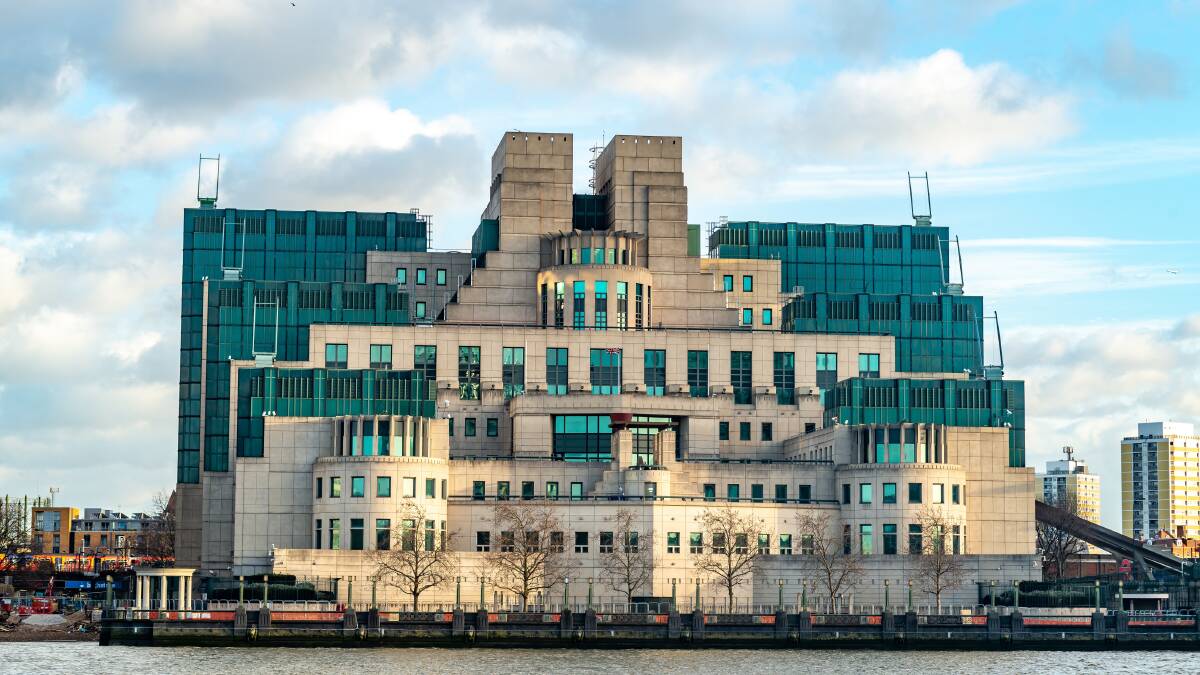The spooks speak.
Over the past few weeks the chiefs of US and British intelligence agencies - the CIA, the FBI, MI5 and MI6 - have all given public assessments of the threat from Beijing, especially about the risk of war over Taiwan and China's espionage and attempts at political manipulation.
What we heard from CIA director William Burns last week was most important: by making a mess of his invasion of Ukraine, Vladimir Putin has probably pushed out the timing for any Chinese attempt at conquering Taiwan.
Unfortunately, that doesn't mean the US and China's neighbours, including Australia, can put their feet up for a few years. As China becomes more belligerent, and other countries finally begin to push back, there's a rising risk of war by accident.
Meanwhile, governments are fighting an intense battle to prevent China from stealing technology and interfering in democratic process.
Australia must worry about the risk of war over Taiwan because such a conflict could result in China dominating east Asia and placing powerful forces on our doorstep.
We'd almost certainly have to help the US defend Taiwan. If we didn't and the US lost, it wouldn't see much reason to help us.
Burns says Putin's experience has disturbed Chinese leader Xi Jinping.

"It seems to me that President Xi and the Chinese leadership have been unsettled to some extent, especially in the first phase of Putin's war in Ukraine, unsettled by the military performance of the Russians early on and the performance of Russian weaponry, unsettled by the economic uncertainties that the war has unleashed around the world," he said at a security conference in Colorado.
Putin had also driven Europeans and Americans closer together, further unsettling China, which had banked on playing off some European countries against the US.
For a long time that seemed to be working.
As for China trying to seize Taiwan, "the risks of that become higher, it seems to us, the further into this decade that you get," Burns said. "Our sense is that [Russia's military mess] probably affects less the question of whether the Chinese leadership might choose some years down the road to use force to control Taiwan but how and when they will do it."
In fact, much of this was apparent almost as soon as Putin launched his invasion - and it was discussed in this column. But now we have the CIA director saying it.
Burns added that China had probably drawn a lesson that it needed overwhelming force before trying to take Taiwan. If that's right, the US and China's neighbours, including Australia, will come under pressure to spend even more money on defence.
MI6 chief Richard Moore suggested the war risk was higher than it seemed, because Xi underestimated US resolve and power. Xi might miscalculate, he said.
(Moore, incidentally, is the person known to readers of spy novels as "C". It seems amazing that these days C will sit on a conference stage and take questions in front of a camera.)
China had lately overtaken terrorism as a focus for MI6's resources, Moore said.
It's a telling point. Terrorists have been a boon to China for the past two decades, distracting Western intelligence agencies just has it has surged to become the biggest international problem.
READ MORE:
Whereas the CIA and MI6 steal secrets - as our ASIS does, too - the FBI and MI5 are out to stop other countries from doing so. That's also the job of our ASIO.
It isn't made any easier when people with secrets are gullible. So FBI director Christopher Wray and MI5 director-general Keith McCallum took the unusual step of speaking together in London to tell people, especially anyone running a business or university, to take care.
MI5 had more than doubled its "previously constrained effort against Chinese activity of concern," said McCallum.
Previously constrained? By what? By having to hunt terrorists, we can assume.
There's no moral judgment against China trying to steal national security secrets. They're fair game and we just have to be on our toes.
But China also steals commercial secrets to give to Chinese companies. Most countries will do no such thing.
That's mainly why the FBI and MI5 wanted to talk to business leaders. With universities, the big problem is national security: some have gleefully grabbed fistfuls of Chinese money in return for helping Beijing develop militarily useful technology.
The agencies aren't just worried about secrets. "The Chinese government is trying to shape the world by interfering in our politics - and those of our allies, I should add," Wray said.
At least Australia is alive to that risk, having woken up to it around 2017.
While the CIA and MI6 chiefs spoke about China's calculations, or miscalculations, in contemplating war over Taiwan, fighting can also begin by accident.
At the time of writing, the speaker of the US House of Representatives, Nancy Pelosi, has reportedly decided to visit Taiwan.
Practiced in the art of taking a bit then taking a bit more, Beijing is highly sensitive to the US's increasing tendency to treat Taiwan in a way that suggests China doesn't own it - for example, with official visits.
With Xi about to be given a third term in office, the CCP is more worried than ever about looking strong. We should worry that the Chinese military will respond to Pelosi's visit with increased aggression around Taiwan or in the South China Sea.
That's the sort of thing that can lead to damaged ships, crashed aircraft, nervous military leaders - and escalation.
- Bradley Perrett was based in Beijing as a journalist from 2004 to 2020.


